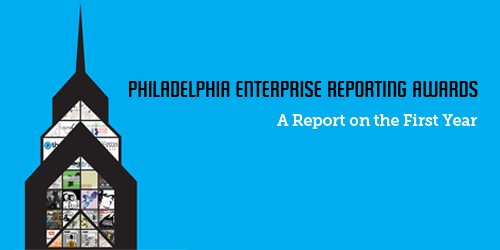
It’s clear that a lot of impressive journalism was accomplished with these awards. The journalism reached broader audiences because of the collaborations. Several of the projects had notable impact and elicited response from public officials. The awards brought diverse voices into the storytelling activities. They also served to validate efforts of many of the city’s new media startups.
The partners say they valued the collaborations and many of the partnerships show promise of continuing. Even though the funds have been spent, many of the projects identify further reporting they’d like to do.
Some of the project leaders said they had aspired to more ambitious efforts that would have involved more sophisticated multimedia entry points or additional data collection, and they scaled down their efforts to match the size of the awards.
- Extended and more flexible timelines. Ten-month of full-year award periods would allow more space for new partners to get to know one another, for training to occur and for data to be collected and analyzed before stories are produced or written.
- Larger awards. Considerations should be given to $7,500 awards, to start.
- Tiered awards. More complex projects should be considered for a second round of funding once they successfully launch the first phase of their projects.
- Collaborative incentives. Projects that engage in robust cross-linking, archive summaries or headlines of stories they linked out to, actively co-publish stories, or grow their partnerships with new members should receive a collaboration bonus to continue their efforts.
- Adjust the start date. The early November launch was difficult for student workers and others. A January or June start date would be better.
- Better inter-project communication. Many of the projects might have benefited from knowing when their peers were launching their reports and might have added links. A Google or Facebook group or email listserv might have juiced some additional linking to one another’s efforts.
- Greater adoption of in-depth reporting awards. We believe mainstream media companies, universities, foundation and other can – and should – replicated programs like the Enterprise Awards and should set aside $60,000 to $100,000 a year in greenhouse funding to start them.
In sharing so much content, however, there were some missed opportunities to help readers find it all:
- Not all the projects created landing pages, where readers could find a list of all the enterprise stories on a particular topic in one place.
- Many individual stories in a series didn’t link back to previous stories or provide any navigation (although Newsworks did provide excellent boxes on its daily Feed that gave users links to related school stories).
- Searches of the sites to find companion content showed how difficult it could be for users to find all the related project stories that were produced.
- Some attractive logos were created but not always used by all partners to brand the projects so readers could know they were part of the same collaboration.
Going forward, we see great potential in initiatives like the Enterprise Reporting Awards to incentivize collaboration, jumpstart reporting that needs to be done and nurture new players in the city’s media ecosystem.
We also believe that WHYY paved the way in producing some collaboration prototypes that could be replicated by other public media outlets.
In all, much was accomplished by these projects in just 10 months. They produced excellent journalism. The partnerships got important news stories distributed beyond the narrow silos of individual websites. The collaborations have seeded other partnership opportunities.
“Going forward, we see great potential in initiatives like the Enterprise Reporting Awards to incentivize collaboration, jumpstart reporting that needs to be done and nurture new players in the city’s media ecosystem.”
“The Enterprise projects have had follow-on impacts beyond just the stories reported,” added Patrick Sherlock, of the William Penn Foundation. “Partners who first met through the Enterprise Fund are now talking about other emerging opportunities to work together, sharing audiences, techniques and staff. Philadelphia’s local community around journalism, new media and technology, formerly diffuse and unaware of their numbers, has coalesced and grown through these small projects.”
The idea of funding for discrete in-depth reporting projects is easily replicable, and we hope to see it used by foundation, traditional media companies, universities, public media stations and others interested in jumpstarting good content.






